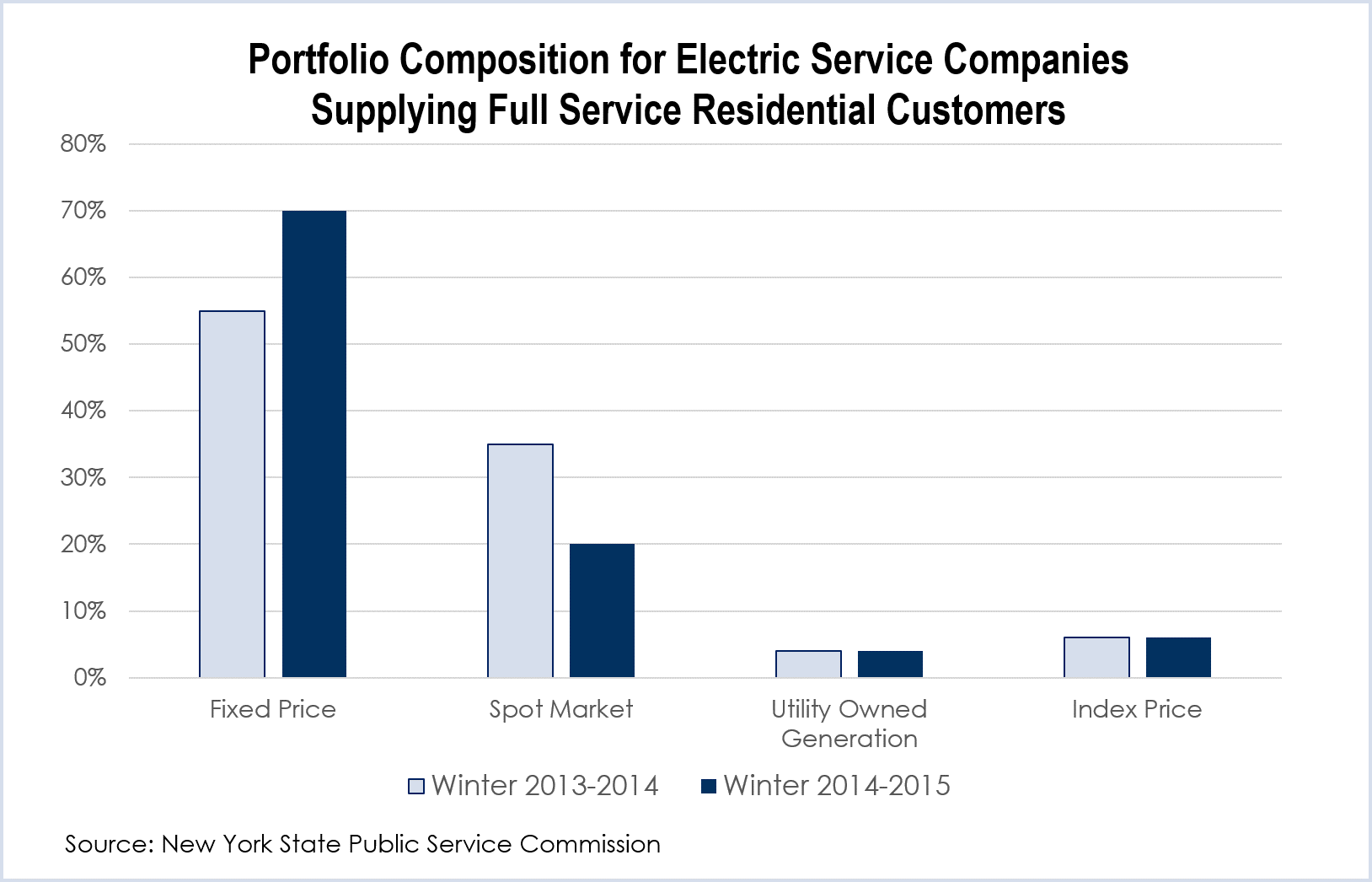By William Opalka

Last year, about 35% of gas was bought on the spot market; this year, utilities intend to cut that down to 20%. The change is intended to insulate the companies from price volatility as natural gas demand for home heating and power generation continues to rise.
“Utilities are better prepared and have modified their portfolios,” said Raj Addepalli, the New York Public Service Commission director of the Office of Electric, Gas and Water, during a briefing at last week’s commission meeting.
After the havoc wrought by last winter’s polar vortex, New York officials say they are ready for severe weather that may come.
New York set a winter peak of 25,738 MW last year, breaking a record set a decade before. The PSC is reporting a capacity margin of 10,400 MW for this winter.
Last year’s cold weather caused electricity prices to rise to unprecedented levels in New York.
Average prices for customers receiving default service or on variable rate contracts with competitive suppliers jumped by an average of almost 12 cents per kWh from December 2013 to January 2014, a 175% increase. Gas prices have stabilized as new production from the Marcellus Shale in Pennsylvania and Utica Shale in Ohio has reached eastern markets. Price projections are 21% to 27% lower than last winter’s forecasts.
That could change some of the fuel mix in New York. Dual-fuel capable power plants frequently switched to oil last winter as natural gas prices jumped above oil 18 times in January.
PSC staff said the Department of Environmental Conservation has promised faster response to requests for fuel waivers needed to switch from natural gas to the more polluting oil. The department took longer to grant waivers than generators and power market officials would have liked last winter, according to PSC officials.
The PSC said it is looking at neighboring regions for long-term policy refinements. “The incentives in place may not be enough” to ensure reliability, Addepalli said, mentioning New England’s pay-for-performance program as a possible model.


